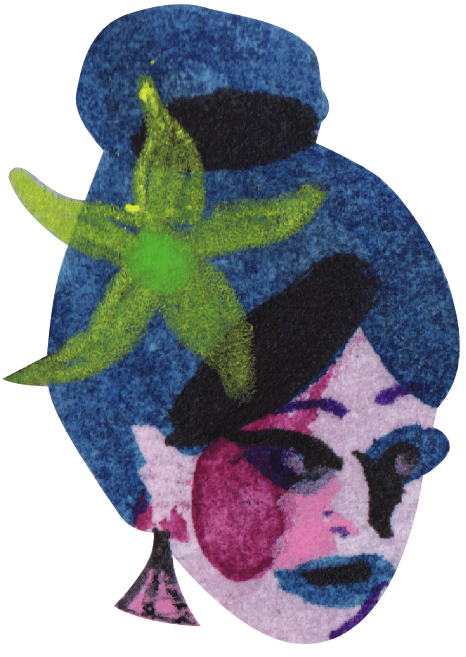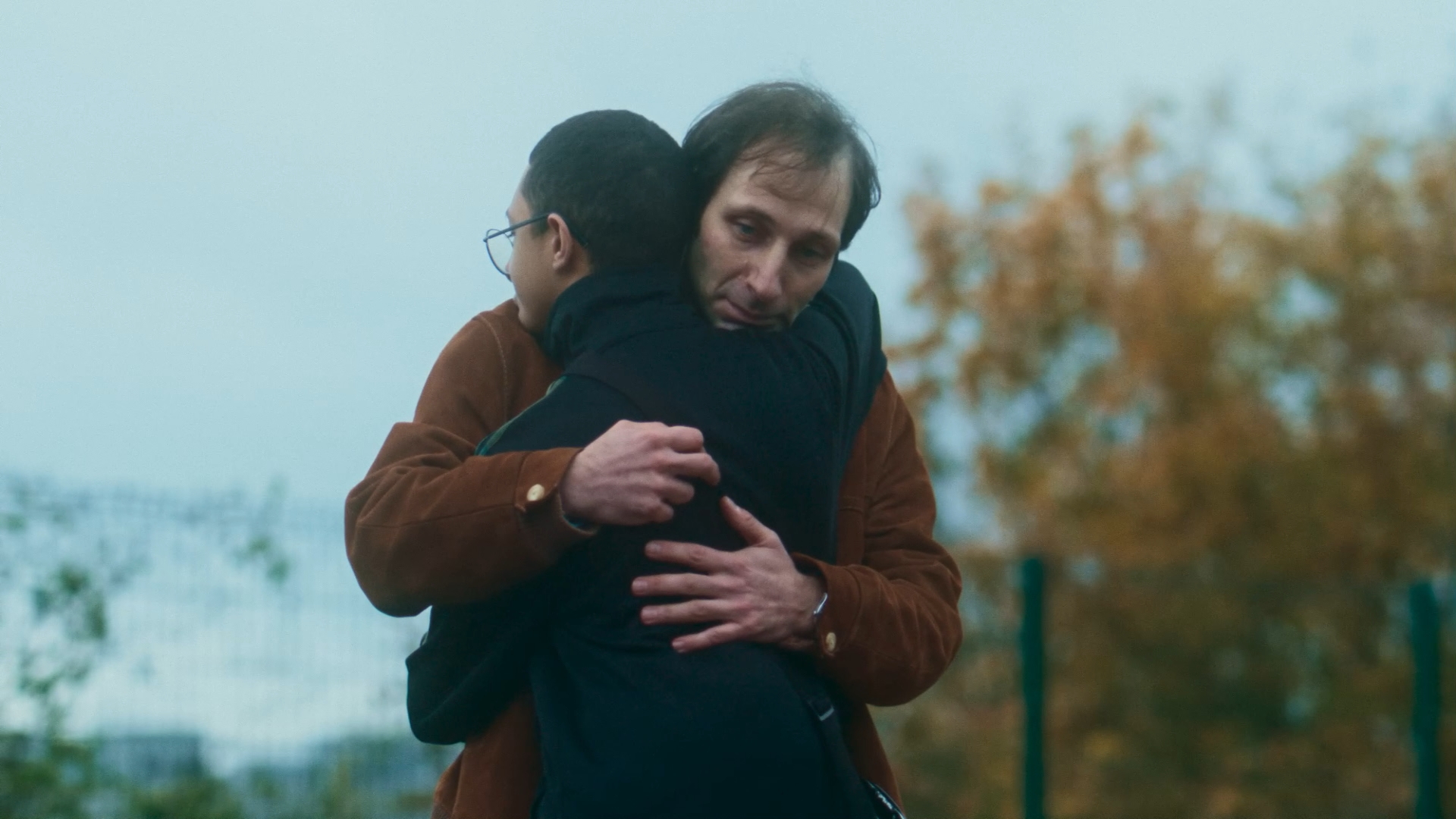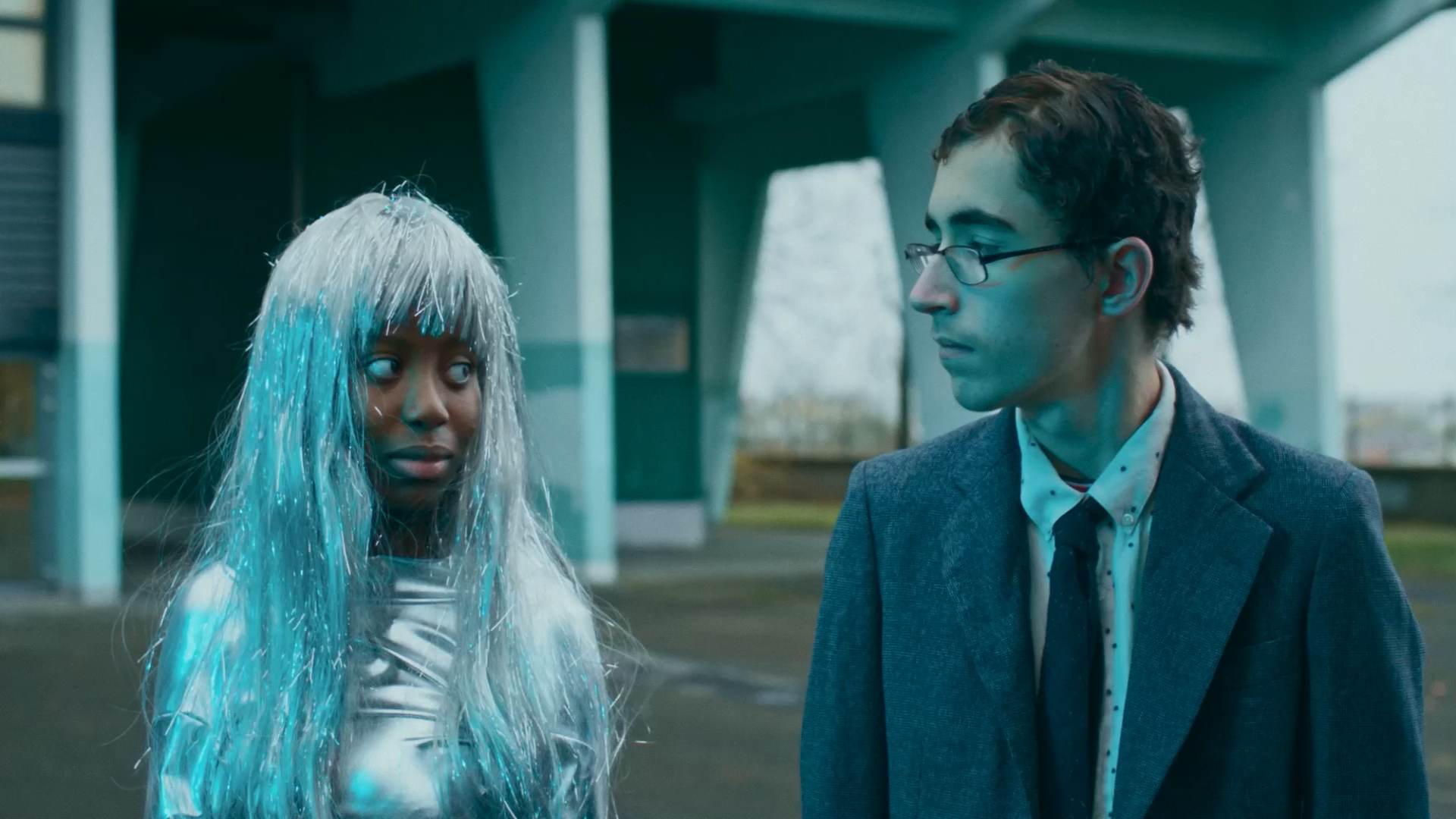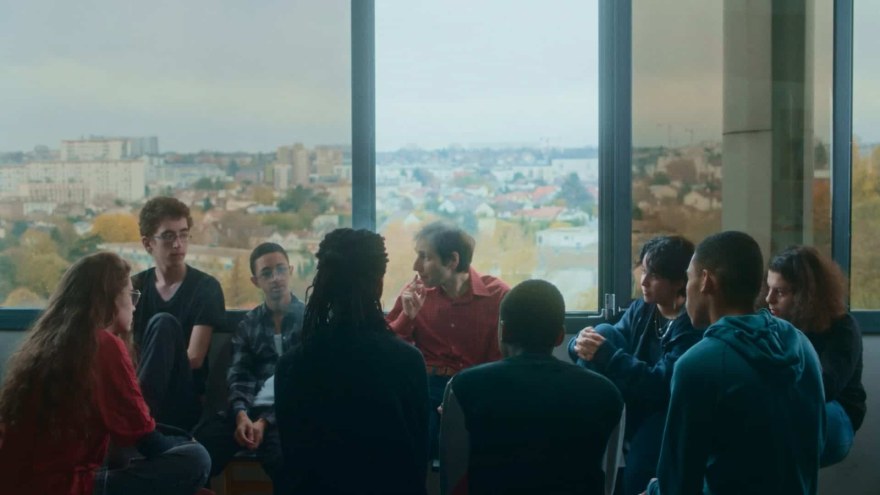Dernier verre avec Planète triste
Entretien avec Sébastien Betbeder, réalisateur de Planète triste
 Comment s’est passée la rencontre avec les protagonistes de Planète triste ? Qu’ont-ils apporté dans l’écriture du scénario ?
Comment s’est passée la rencontre avec les protagonistes de Planète triste ? Qu’ont-ils apporté dans l’écriture du scénario ?
Planète triste est né d’une commande de la mairie d’Ivry et du cinéma Le Luxy par l’intermédiaire de Jean-Jacques Ruttner (rendu possible grâce à l’accompagnement en production d’Envie de Tempête). Cette initiative qui consiste à proposer à un réalisateur de travailler avec les lycéens de l’option cinéma afin de fabriquer un film a par le passé donné lieu à des objets souvent documentaires (à l’image des films de Claire Simon ou de Jean-Gabriel Périot). J’avais envie, pour ma part, d’un film de fiction de format court, influencé par le teen movie et des œuvres qui me sont chères comme Breakfast Club ou la série Freaks and Geeks. J’ai donc décidé de prendre, en quelque sorte, au pied de la lettre la commande est d’écrire un scénario dans lequel un réalisateur de court métrage, n’ayant pas connu jusqu’à présent le succès espéré, acceptait d’animer un atelier de cinéma dans un lycée de banlieue. Cette mise en abyme était un dispositif parfait pour travailler avec les lycéens dans le but de filmer ce qu’ils sont, ce qu’ils ont envie de montrer d’eux dans le cadre d’une fiction écrite mais ouverte à l’inattendu, à l’expérience d’un tournage. C’est exactement de cette façon que s’est passée la conception du film. Le scénario que j’avais écrit s’est trouvé métamorphosé, augmenté par la rencontre, l’échange et le travail avec les 8 lycéens qui apparaissent à l’image et les huit autres qui allaient seconder la toute petite équipe technique composée de fidèles collaborateurs. Je crois que lors de la préparation durant laquelle je leur montrais des extraits de films, où nous faisions des lectures du scénario, où je les filmais en les interrogeant sur leurs vies, sur leurs aspirations ; nous avons appris à nous connaître (eux et moi, mais aussi Grégoire, le comédien principal, l’équipe technique et eux) et que Planète Triste est le résultat de cette expérience commune, de cette confiance qui est née dans le travail préparatoire et qui s’est concrétisée durant les six jours de tournage.


J’ai immédiatement pensé à Grégoire pour interpréter le rôle de Rémi Simonian, cet apprenti réalisateur embarqué dans la galère de cet atelier cinéma. Grégoire avait un petit rôle dans mon dernier long métrage Debout sur la montagne. J’avais adoré le diriger et avait été frustré de ne pouvoir aller plus loin du fait de la brièveté de son apparition dans le film. Je suis très impressionné par le mélange de comédie et de gravité, de tendresse et de violence contenue qu’il propose dans son jeu et qu’il me plaisait de développer plus largement avec le personnage de Rémi.

Je ne sais pas si je parlerais de rêverie concernant le personnage de Rémi. Rémi Simonian est un être qui a les deux pieds ancrés très fortement dans le réel, dans un réel qui le paralyse et c’est là tout son problème ! Cette difficulté à s’abandonner, à se laisser surprendre est le malheur de sa vie. Mais c’est grâce à la rencontre avec ses jeunes gens ô combien éloignés de lui, grâce à cette relation inattendue et inespérée qu’il va parvenir à s’ouvrir au monde. C’est de cela dont Planète triste se veut l’écho. Ensemble, ils vont réaliser un film ; un film de science-fiction dans lequel Rémi jouera le rôle de celui qui ressuscite, qui est sauvé par ces jeunes gens d’une autre génération. Une génération qui veut croire encore qu’il est possible de rêver. C’était étrange de tourner ce film durant la pandémie, à la période où été instaurée le couvre-feu et les jauges à 50 % dans les classes. Nous nous réunissions dans ce lycée à moitié vide pour raconter cette histoire, comme un pied de nez à la situation que nous subissions, comme un acte de résistance à notre échelle. En cela, l’humour était un remède à la morosité ambiante et j’étais impressionné par la capacité des lycéens à jouer de leur image, à se moquer d’eux-mêmes, à prendre la comédie au sérieux dans le but de nourrir leurs personnages.


Je me lance dans la conception de chaque film que je tourne avec le même engagement qu’il soit long ou court. Planète triste n’échappe pas à cette règle. Sa seule singularité par rapport à d’autres de mes réalisations, est que ce film est né d’une commande. Cette commande, je l’ai reçue comme un cadeau, une opportunité de mettre en scène un sujet, un décor, des personnages que je n’avais encore jamais rencontrés. Ça a été une joie de m’y confronter et ce film m’a beaucoup apporté. Je sais qu’il a fait naître en moi d’autres désirs de fictions. J’aime à considérer que chaque film nourrit le prochain. Je crois que Planète triste est un film qui ne ressemble à aucun autre de ceux que j’ai tourné et il est en même temps une étape déterminante dans mon parcours.

Je pourrais en citer beaucoup. Mais Il y en a un qui m’a particulièrement touché ces derniers mois. Il s’agit de La Maison (pas très loin du Donegal) de Claude Le Pape. Le film est très simple et très beau dans son attention portée aux personnages, dans ses partis-pris de mise en scène et Jackie Berroyer y est bouleversant.

Je répondrais comme le fait Alexia dans Planète triste quand Rémi lui demande ce qu’elle désire que le film qu’ils vont réaliser ensemble soit : un film honnête.
Pour voir Planète triste, rendez-vous aux séances de la compétition nationale F7.








